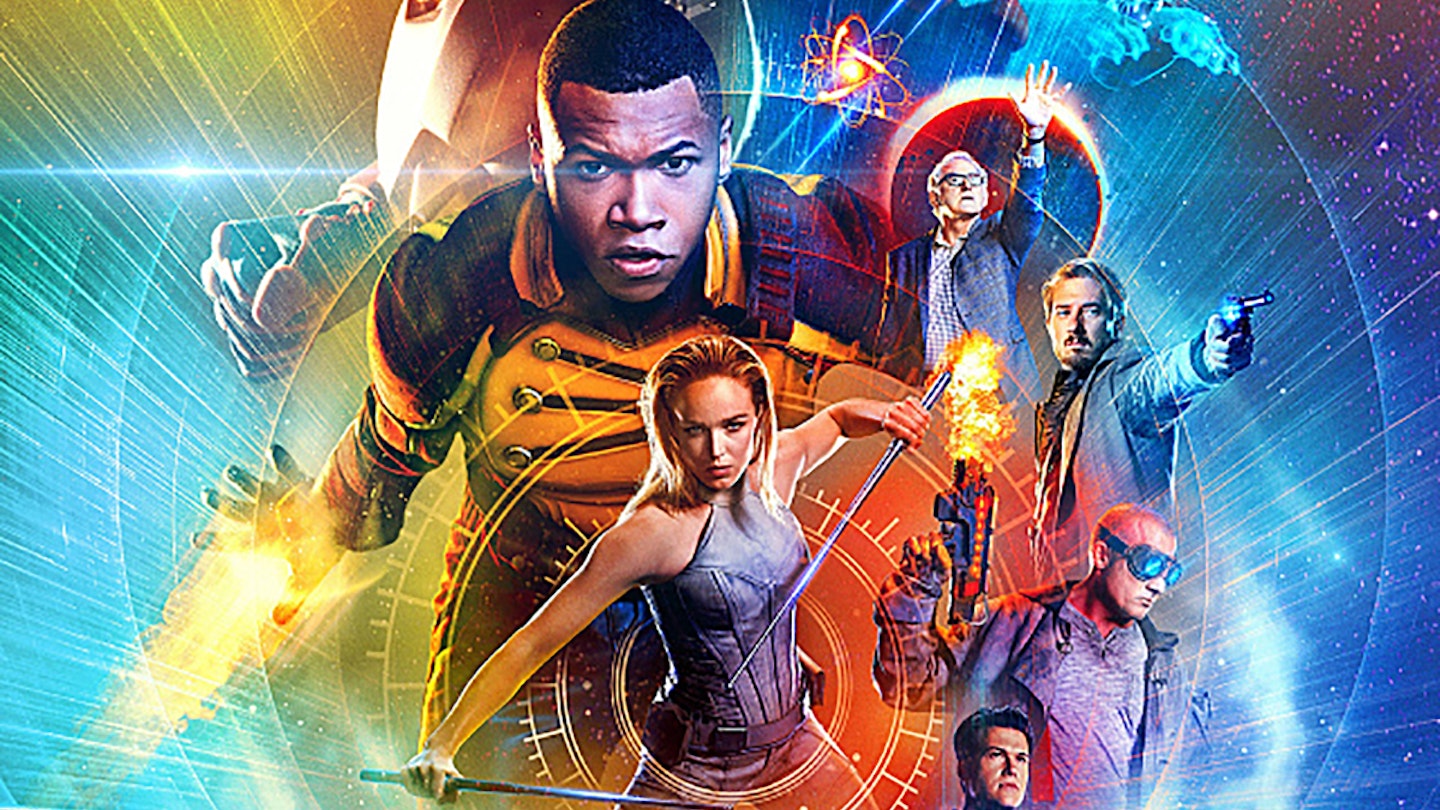DC’s Legends Of Tomorrow is a series that, from all reports, has gone through substantial transformation in its creative approach to season two. Its core group of heroes and villains, following events of year one, are traveling through time trying to keep history on the right track, and not always succeeding. Along the way, they’re going to encounter the Justice Society Of America (which turns out to be an idealized version of themselves) and the Legion Of Doom.
A significant issue of season one was an internal need to make sure that the entire ensemble was featured at all times. Now the powers that are recognize that focusing on smaller groups at the center of an episode actually makes the show stronger. Besides, with this many characters it would be impossible to get them all in anyway: Series regulars are Ray Palmer/The Atom (Brandon Routh), Professor Martin Stein/Firestorm (Victor Garber), Rip Hunter (Arthur Darvill), Sara Lance/White Canary (Caity Lotz), Jefferson “Jax” Jackson/Firestorm (Franz Drameh), Amaya Jiwe/Vixen (Maisie Richardson-Sellers), Dr. Nate Heywood/Citizen Steel (Nick Zano), Mick Rory/Heat Wave (Dominic Purcell), and Eobard Thawne/Reverse-Flash (Matt Letscher). Additionally, recurring characters are Rex Tyler (Patrick J. Adams), Damien Darhk (Neal McDonough), the voice of Todd Rice/Obsidian (Dan Payne/Lance Henriksen's voice), Courtney Whitmore/Stargirl (Sarah Grey), Dr. Mid-Nite (Kwesi Ameyaw) and Henry Heywood/Commander Steel (Matthew MacCaull).
In this exclusive interview, executive producer/showrunner Phil Klemmer provides Empire with insight on all of the changes that have taken place.
When asked about lessons learned from season one, you’ve commented that it was like jumping on an express train when it’s going around a bend. What has that translated to?
This season we did have the luxury of taking a couple of weeks before we actually started talking story, and just began by talking characters and trying to understand the arcs that we wanted to take each of our people on. Those are always flexible to change, because as you start writing scripts, and seeing cuts, you’re thinking new things, or you see new directions. Just the luxury of time, and being able to consider the character journeys I think was really valuable compared to last season when we jumped right to series without a lot of development time. Then, conceptually, trying to think about what episodes we liked from last season, and how could we make that formula work for us again. We just realized that having more room for our characters to have those character moments is really what they needed. We had a Western episode last year that was unencumbered in that there was no ticking clock; the world was not ending, there was no family that needed to be avenged.
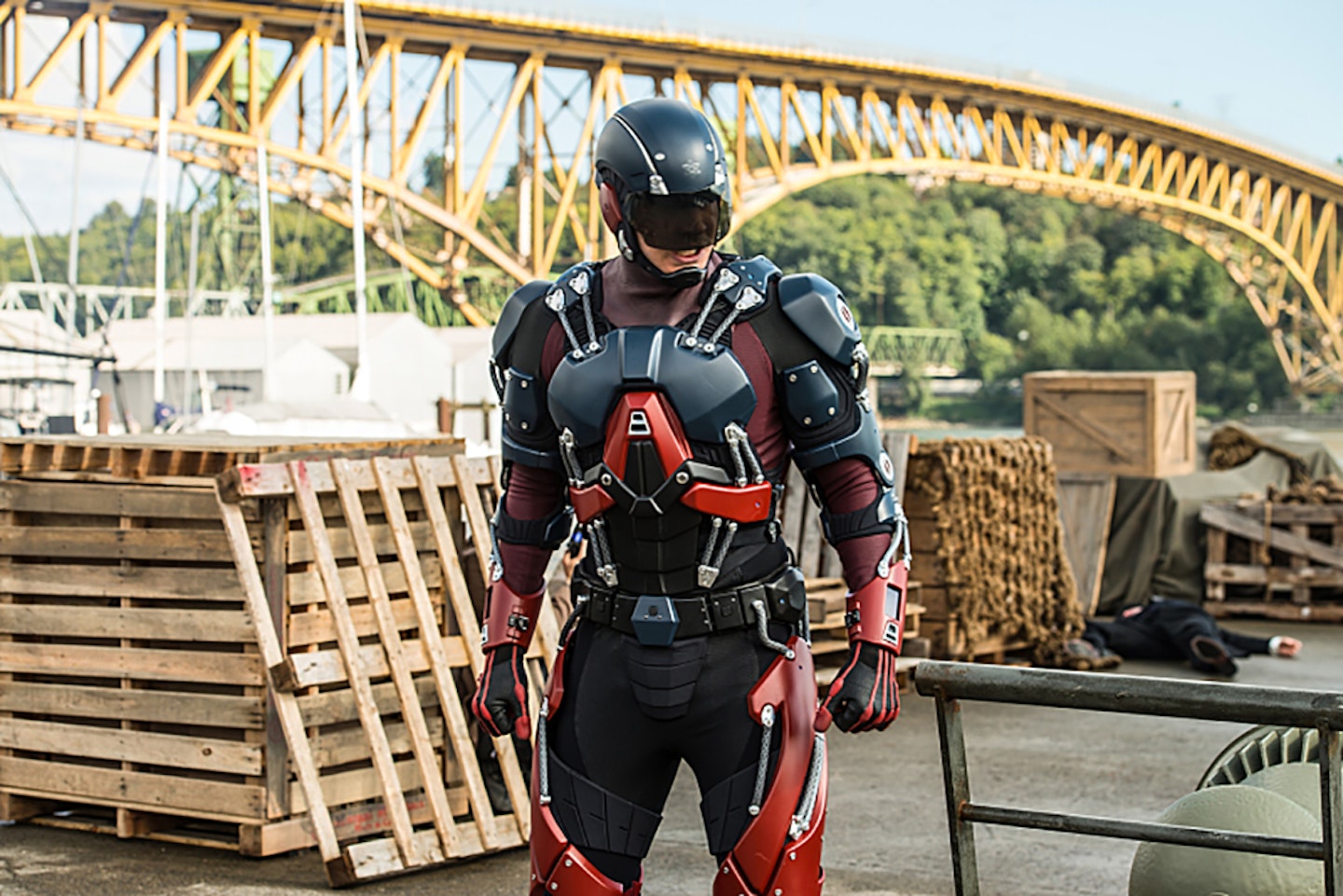
We lucked into a new conceit, where having destroyed the Time Masters and the Vanishing Point, our guys have this epiphany at the top of the second season where they go, “Oh, my God! There’s nobody left to police time, and we don’t really want to do it, we’re probably not very good at doing it …” It’s just the Bad News Bears fun of, “But we have to do it! We’re going to make mistakes, and we’re going to screw things up …” Now, it’s more mission-based, and it’s all based in history. It’s these things that we call aberrations, where if a time traveler goes and breaks Mozart’s fingers all of a sudden, or if somebody is in the Book Depository on November 23, or whenever that happened in ’63 … Well we can’t do that, because there’s another show that did that, but anyway, it’s all about these marquee historical moments, and these famous historical figures. So we’re living much more in the … I shouldn’t say the word “milieu,” because people sound like jerks when they say that, but we’re living in the milieu of history. It’s the fun and incongruity of seeing our ragtag bunch of superheroes trying to do their job as they’re walking through the pages of history, whether it’s Paris in the Twenties or San Francisco in the Sixties. To me, that’s the fun of the show, and releasing them from the responsibility of saving the world has given them the opportunity to go on these smaller missions that, in a weird way, can be much more personal, and just be a lot more fun!
But they are, in fact, policing the timeline now, so to speak. You almost have this weird dichotomy, though, because on the one hand you’re saying, “This is more fun when they just have these little adventures,” but by the same token, now everything falls on their shoulders!
Exactly, exactly! But the really interesting thing is, they’re not Time Masters, so it’s not always about restoring things back to the way they were. The sort of moral question at the center of season two, or what it will become, is, “Wait, what is our job? Is it just to fix what was broken? There are a lot of parts of history that were broken to begin with, and we have the ability now to go back and change things for the better.” With that, we’ve got some real dirtbags on our team, like Mick Rory, although he’s slowing rehabilitating his ways, but we also have a lot of do-gooders. People like Ray Palmer, who can’t resist the opportunities. So it’s not enough to put things back the way they were; our Legends will come up with a new definition of the job.
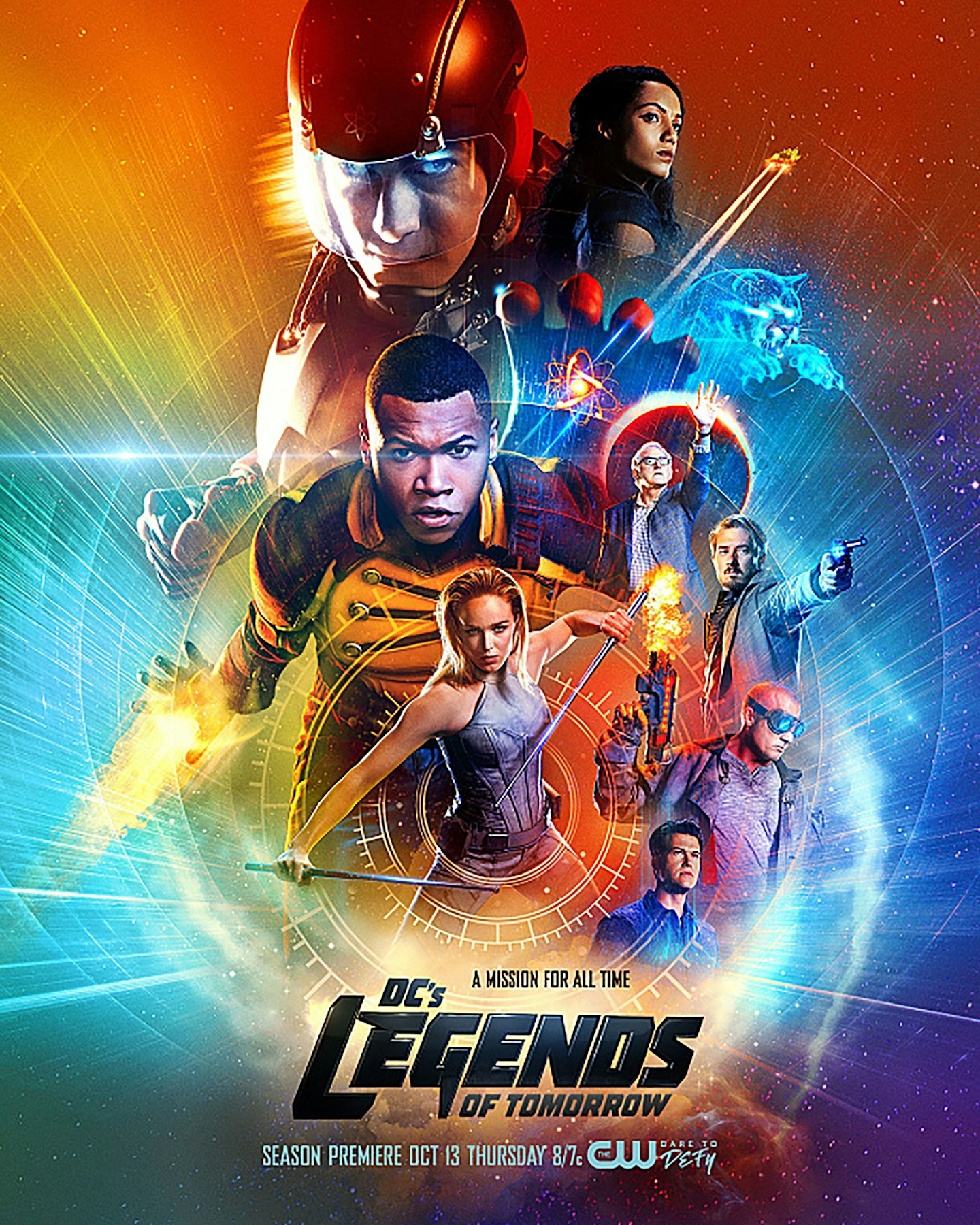
The vast majority of time travel shows refuse to change history and leave it changed. Can you actually have them change things and will we see the results of those changes?
You can, you can! Though we have to be judicious. Presumably, we will go home again, but if Flash could have Flashpoint, we can certainly clean up a version of history as well. I agree, it would be a bummer if it were just all about hitting the reset button. We don’t worry about things like that on our show.
Since you’ve taken this new tack this season, are you finding aspects of the characters now that you weren’t able to find before?
Definitely! We’ve added some characters to our mix, which is always hair-raising and thrilling, because it’s like cooking with a spice you’ve never used before. Our show is an ensemble, it’s definitely like a stew, and I think it was pretty clear to us that Sara was emerging as a sort of de facto captain-in-waiting character. It was clear to us that Mick Rory and Ray Palmer had a weird, Odd Couple kind of chemistry, and that in a weird way, Rip was becoming a sort of heir-apparent as Rory’s new partner when Snart was killed. Then, we added Maisie Richardson-Sellers and Nick Zano, who are playing Vixen and Nate Heywood, who will have his own powers eventually. But when we added them to the mix, we had no idea who they would work well with, and as it turns out, it’s amazing watching Vixen and Sara together. It just works, and you’re, like, “Okay, we’re going to start telling their stories.” The great thing about this show is that it’s always changing.

The impression is that the focus is going to be more on smaller groups of characters rather than the entire ensemble.
We discovered it’s easy to spread yourself too thin with eight actors, and each of them could totally occupy a full fifty-page episode, just with their own story. We were under the impression that, if you left a character out, people would get pissed, or the actor would feel neglected. The actors are totally confident in their abilities, and now they know, and the audience should as well, that if somebody recedes into the background for an episode, that means they’re coming up with a big one next time. It’s freed us up as storytellers, for sure.
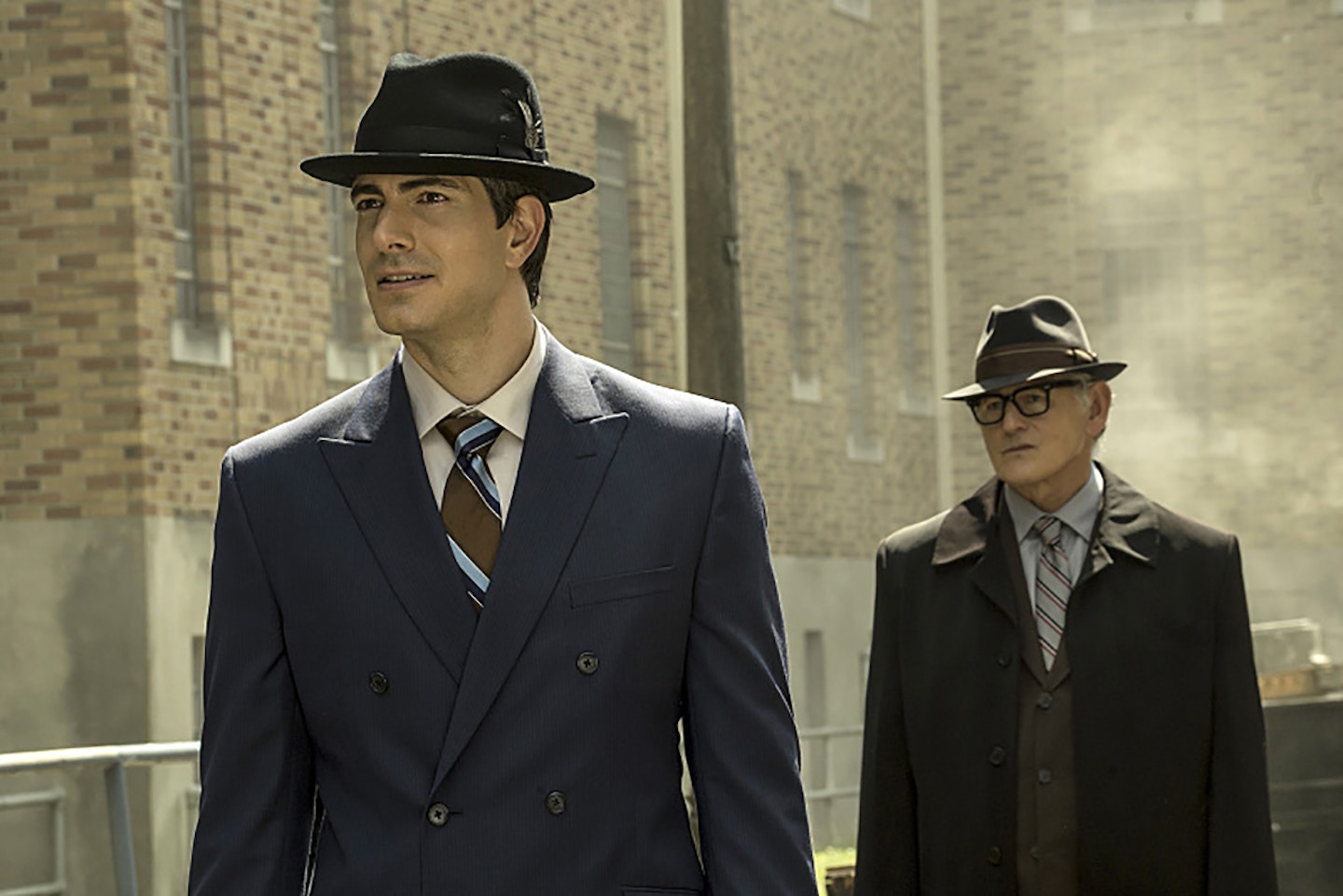
Added elements throughout the season include the Justice Society and the Legion Of Doom. What are they bringing to the show?
We’ve always imagined Legends to be a sort of dysfunctional family show, and by meeting their forefathers and sisters in the form of the Justice Society, it’s a chance to meet the Greatest Generation. We just wanted to tell that generational story, since we can travel in time. Neither of my grandfathers fought in World War II, but what would it be like if you had that sort of grandfather who was on the beach at Normandy? For me, if Starbucks screws up my coffee order, it’s the end of the world, and this guy’s, like, “Oh yeah, I got shot at by Nazis!” For our guys who are not natural superheroes, and certainly they’re not naturally a team by any stretch of the imagination, we wanted to put them in juxtaposition with the greatest version of a team, so that their own deficiencies would become apparent. And also, we like that our Legends can realize that they’re not the Justice Society, but there is something special about them, and it is the fact that they’re the underdogs, the Bad News Bears. They’re not losers, but they’re not perfect. It’s their imperfections and the weird way that they complement each other that’s wonderful to watch.
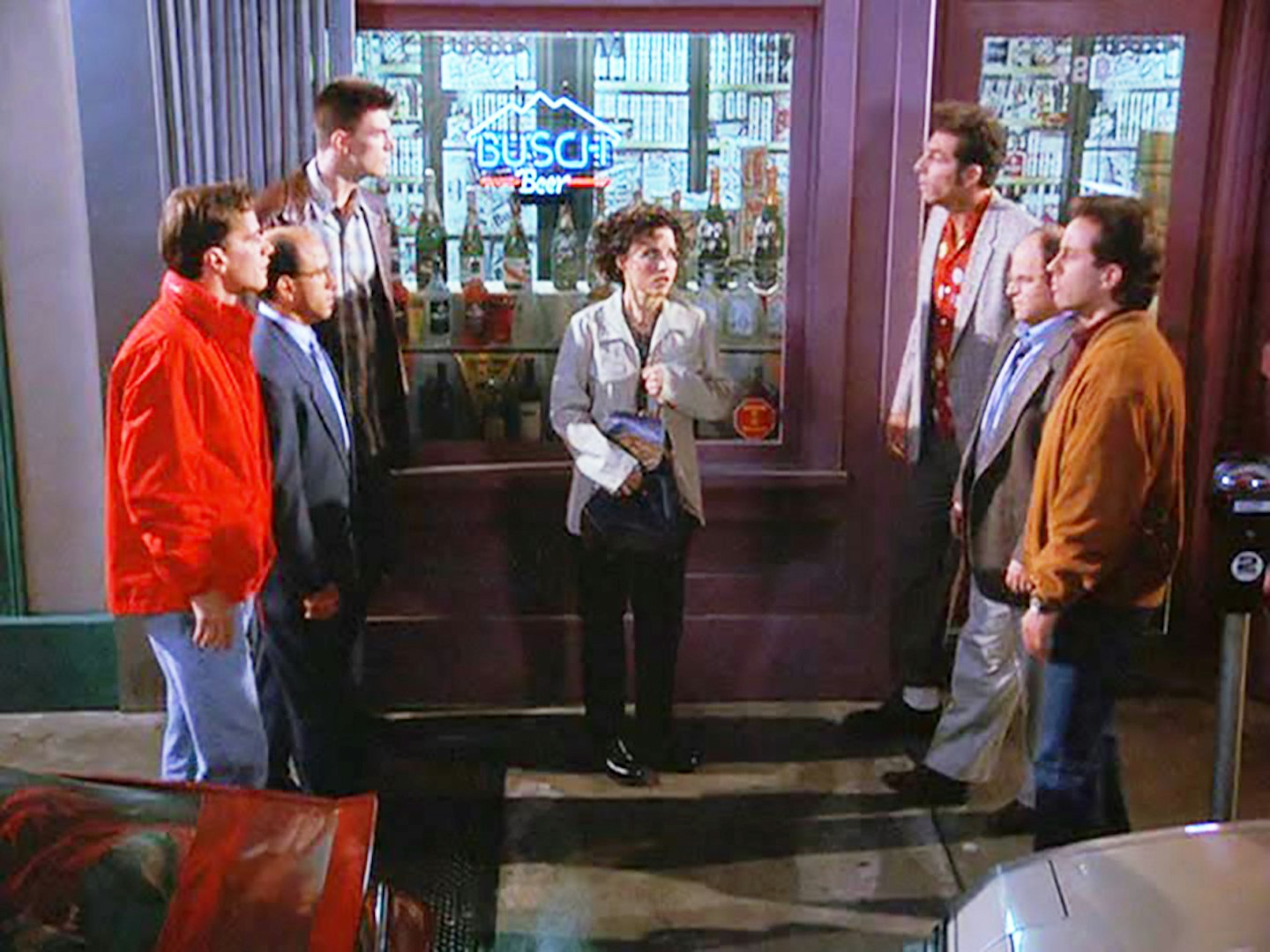
That first meeting sounds like the "Bizarro Seinfeld" episode!
It was exactly that! You totally encapsulated that moment, where it’s like, “Is that me? Oh, my God!” Then, with the Legion Of Doom we just wanted to do a Greatest Hits of the bad guys from the other shows. We wanted to bring on bad guys that had real personal histories and grudges with our guys, as opposed to Rip, whose nemesis was Vandal Savage. We wanted to make it more about the rest of the team this year. Also, having a team of bad guys … Vandal Savage was a pretty monolithic dude, who announced his agenda in the first frame of last season: “I’m going to rule the world! I’m going to kill your family!” With the Legion of Doom, we don’t really know what they’re up to; they don’t really trust one another, and it’s cool!

Season two is much more about mysteries, like when the Legends show up and they have to fix a tear in time, or an aberration or something. It’s about the mystery of, “How do we do this? Who caused it? How do we make it right?” That’s true with the Big Bad as well: we want the Legion’s agenda to be something that evolves over the course of the season. This season should all be about mystery.
Are they going to be sitting in a giant skull in a swamp?
No, no, that hasn’t gone up on the board yet!
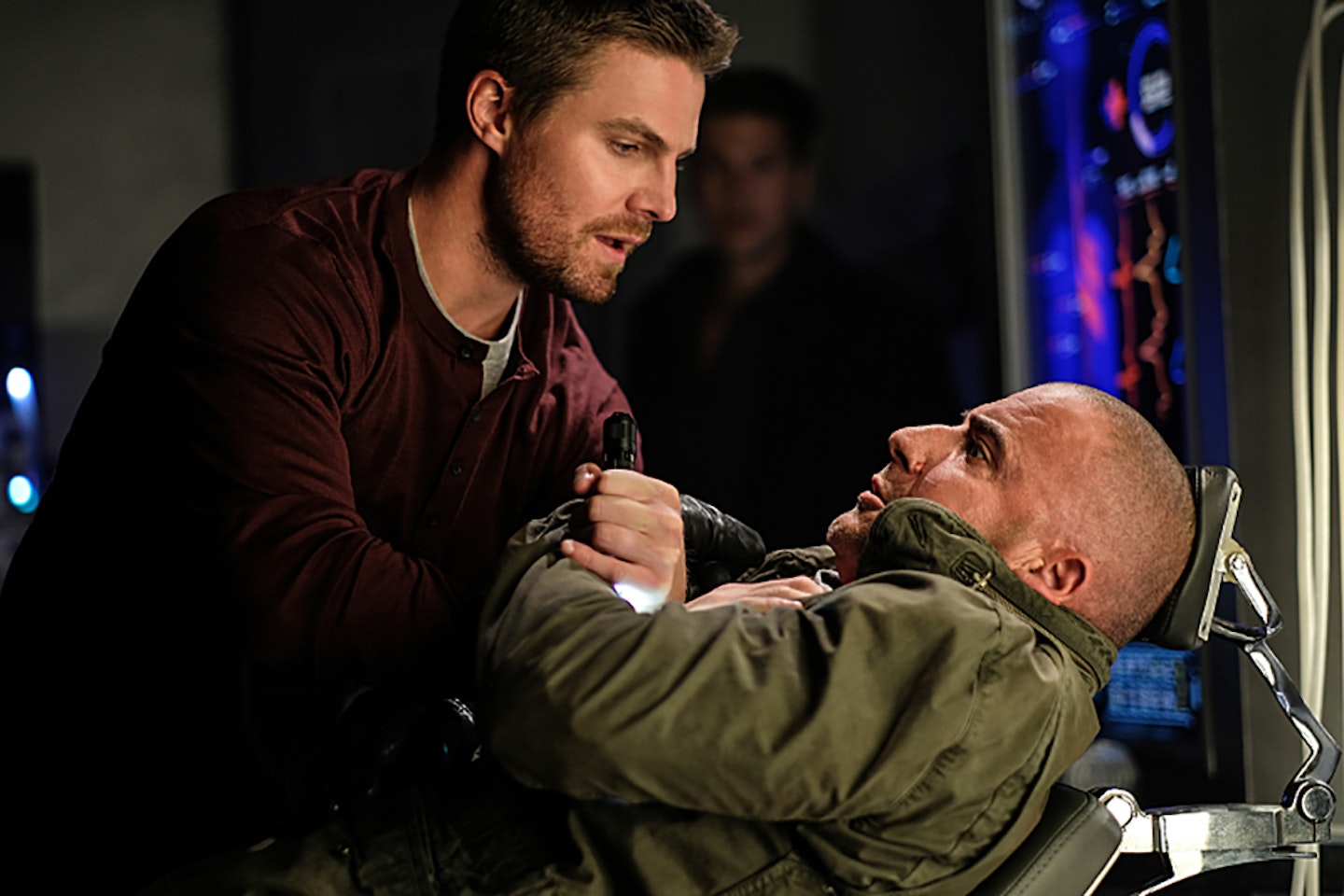
You’re dealing with a show that, in its own way, is a crossover show in itself. How insane is it to have to deal with this massive four-episode crossover with The Flash, Arrow and Supergirl?
I don’t know. The thing is, we wrote the script, which feels like a small miracle unto itself. Right now, we’re sort of endeavoring to figure out how everybody’s schedules are going to afford it. I think it’s the sort of thing that I’ll be grateful I did once it’s done, or maybe on my deathbed. Seriously, looking down the barrel of it, it is really amazing! It’s incredible that we get the opportunity to do this. We’re already afforded such incredible liberty with this show! The ideas that we’ve run past the studio and the network that they just don’t blink an eye at … there’s really no idea that’s too insane. I think everybody’s just been so desensitized to it all. You hand them a script, and they’re like, “All right, there’s Flash, there’s Supergirl, there’s Oliver, there’s twenty-eight other Legends and bad guys, and we’re going to travel through time …” They don’t even blink at it.
Empire's* previous articles on Arrow, The Flash, Supergirl and *DC's Legends Of Tomorrow
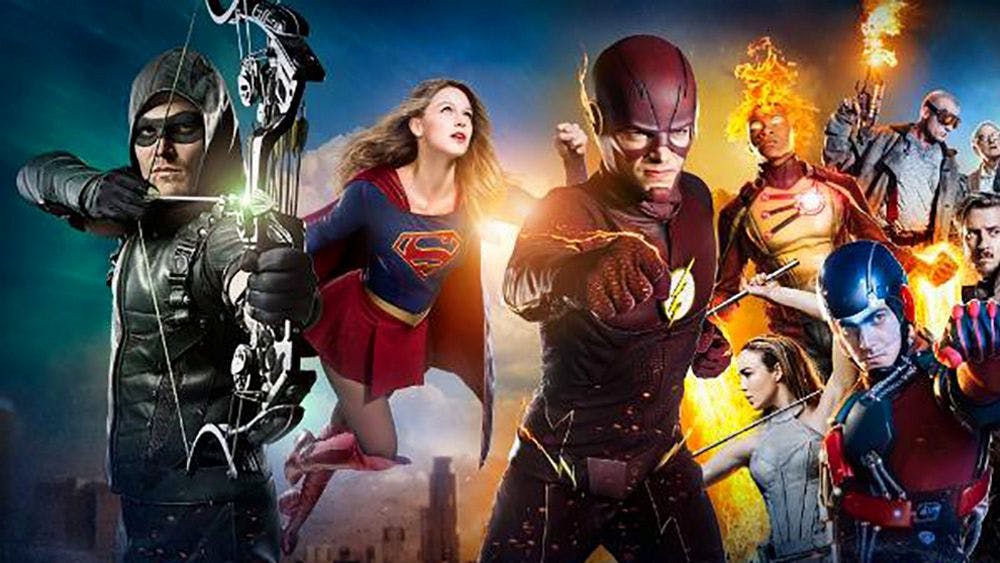%20](http://www.empireonline.com/movies/features/dc-tv-empire-articles-arrow-flash-supergirl-legends-tomorrow/dc-tv-empire-articles-arrow-flash-supergirl-legends-tomorrow?auto=format&w=1440&q=80)
